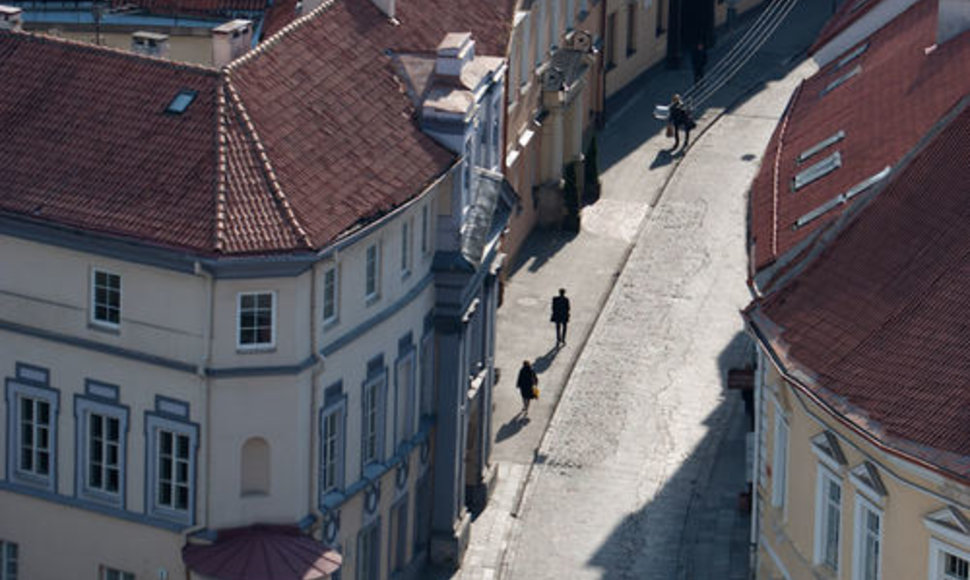The film is the latest in a series about Jewish writers directed by Boris Sandler, the editor of the New York-based Yiddish newspaper Forverts. Sandler presented the film, in Yiddish with English subtitles, at the Lithuanian Embassy in Washington, D.C., on October 18, under the auspices of Yiddish of Greater Washington.
Before World War II, Vilnius was home to 60,000 Jews. Among them were not only scholars, writers, merchants, and political activists – but also a vibrant underclass.
The Vilnius-born Karpinovitch (1913-2004) set about recording and memorializing this multi-colored underworld. To his chosen task, he brought a finely tuned ear for slang, an eye for evocative detail, a talent for blending fact and fiction, and an abiding affection.
As the son of a Jewish theatre director, Karpinovitch was exposed early to the treasures of stage culture. “I feasted on a rich stew of folk cuisine,” he says, “and that’s how I became a writer.”
Before the outbreak of World War II, Karpinovitch immigrated to the Soviet Union, where he was arrested and sent to Siberia. After the war, he settled in Israel. For more than 30 years he managed the Israel Philharmonic Orchestra. “I wore a suit and tie all day,” he says, “then sat down and wrote about the Vilna underground.”
Sandler interviewed and taped Karpinovitch and 20 other Yiddish writers in Israel in 1995.
“Tall Tamare,” a story translated into English by Helen Mintz, tells the tale of a Vilna streetwalker who helps to organize a union for her fellow brothel employees, then behaves with striking dignity at the killing field of Ponar (Paneriai) in 1941. The writer’s work has been translated from Yiddish into Hebrew, Polish, Russian, German, and Lithuanian.
As the chronicler of a bygone world, Sandler said, Karpinovitch “was able to invoke in his own way the mourner’s prayer for his beloved compatriots. He brought his fellow Jews to life so that we, their surviving descendants, could see ourselves in them and remember them.”
Sandler’s film invites viewers to stroll through the old Jewish quarter in present-day Vilnius, where, the director says, “in the streets and alleys and walls and buildings, shadows are looking at us.”












